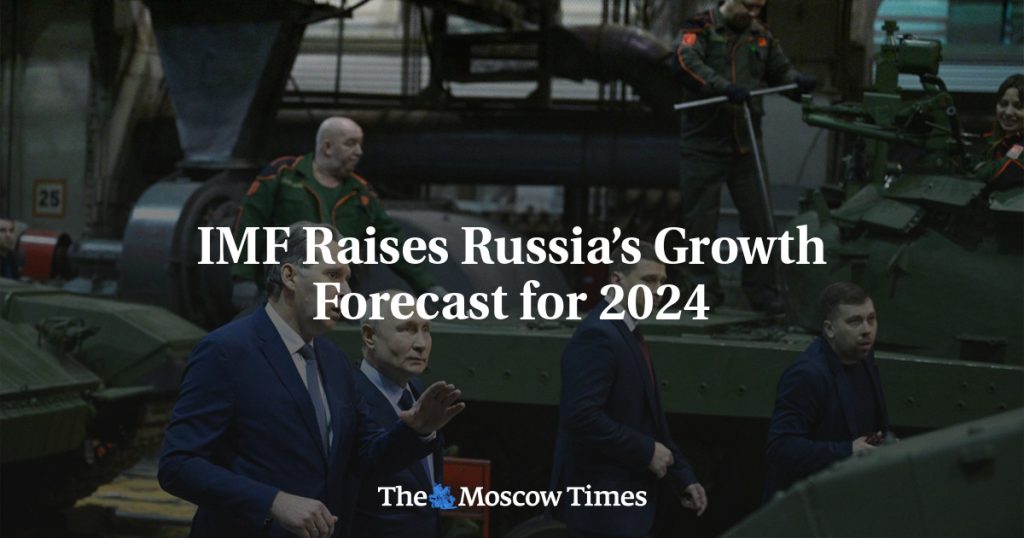The International Monetary Fund (IMF) has upgraded its forecast for Russia’s economic growth in 2024, citing surging military spending as a key factor in shielding the country from an economic downturn. The IMF now expects Russia’s economy to grow by 3.2% this year, up from the previous forecast of 2.6%. The Kremlin has allocated 10.8 trillion rubles ($115 billion) for defense spending in 2024, placing the economy on a war footing amid the ongoing conflict in Ukraine.
The increased military spending has helped Russia defy predictions of a sharp economic downturn that some had initially expected following President Vladimir Putin’s full-scale invasion of Ukraine in February 2022. Despite the conflict dragging on with no apparent end in sight, Russia has managed to sustain economic growth through its military investments. However, the mobilization of soldiers, rising domestic arms production, and a labor shortage resulting from men avoiding military drafts have led to challenges in certain sectors of the economy.
The combination of increased military activity and labor shortages has led to a spiral of rising wages and consumer prices in Russia. As a result, the Central Bank of Russia has opted to maintain interest rates at their current levels, with Governor Elvira Nabiullina warning of signs of overheating in the economy. The ongoing conflict in Ukraine and the associated economic developments have created uncertainties in Russia’s economic outlook, prompting policymakers to carefully monitor the situation.
The IMF’s revised forecast for Russia’s economic growth reflects the impact of increased military spending on the country’s economy. While the surge in defense expenditures has helped sustain economic growth in the face of external pressures and sanctions, it has also led to challenges such as labor shortages and inflation. The Russian government’s focus on military investments amid the conflict in Ukraine has influenced economic policy decisions and contributed to the current economic landscape.
As Russia continues to navigate the economic implications of the conflict in Ukraine and military mobilization, policymakers face the challenge of balancing growth objectives with the need to address emerging issues such as inflation and labor shortages. The government’s commitment to defense spending has played a significant role in supporting economic activity but has also resulted in unintended consequences that require attention. Moving forward, Russian authorities will need to carefully manage economic policies to address these challenges and sustain growth amid ongoing geopolitical uncertainties.
In conclusion, the IMF’s upgraded forecast for Russia’s economic growth in 2024 reflects the influence of military spending on the country’s economy. The impact of increased defense expenditures, driven by ongoing conflict in Ukraine, has shaped Russia’s economic performance and policy decisions. While the surge in military spending has helped shield the country from downturns, it has also created challenges such as labor shortages and inflation. Russian policymakers face the task of managing these issues while sustaining economic growth amid geopolitical uncertainties and external pressures.


